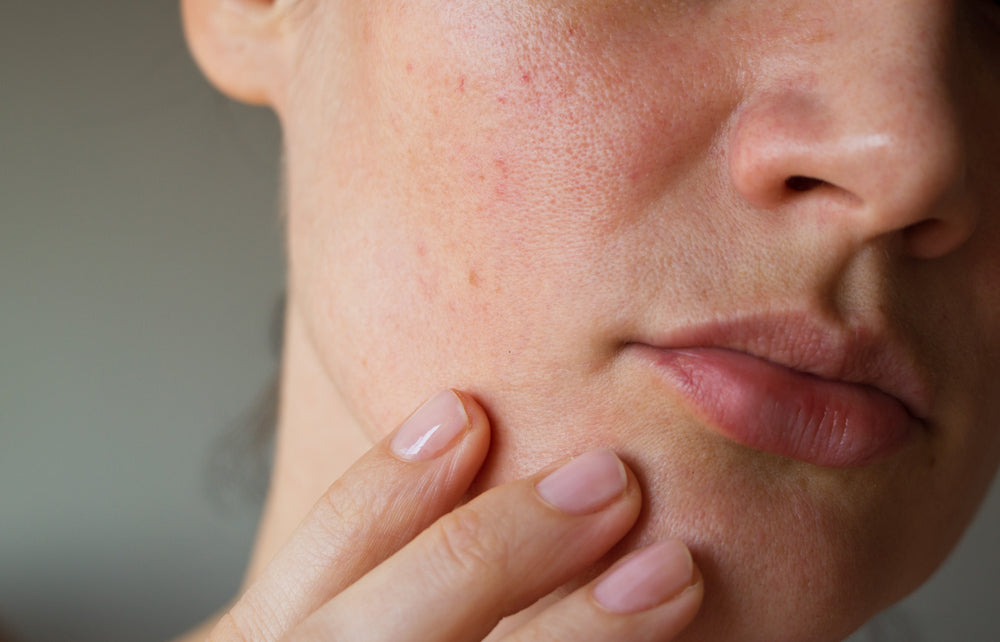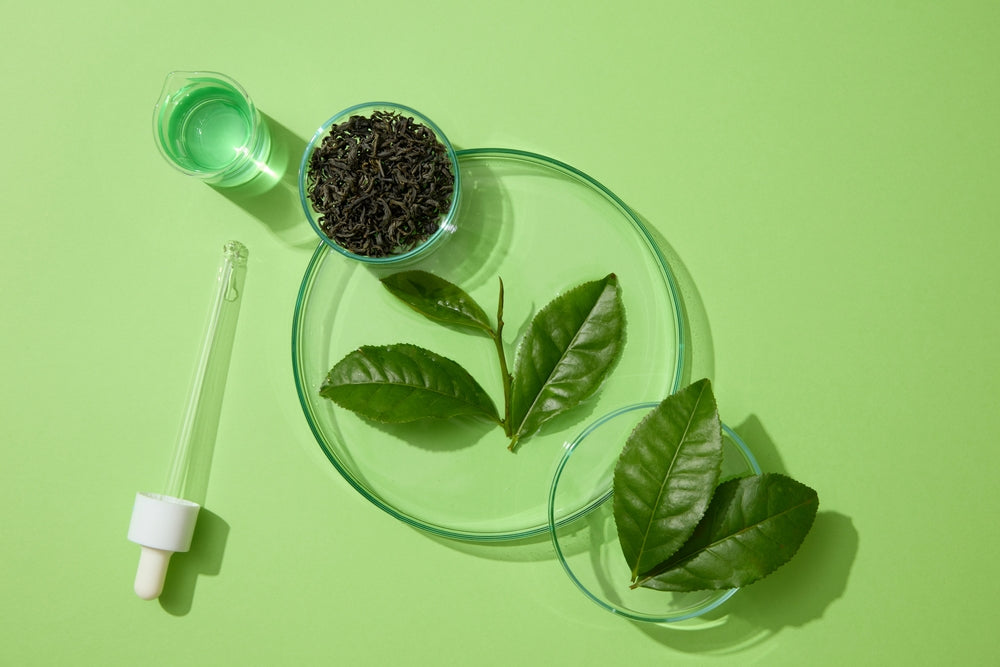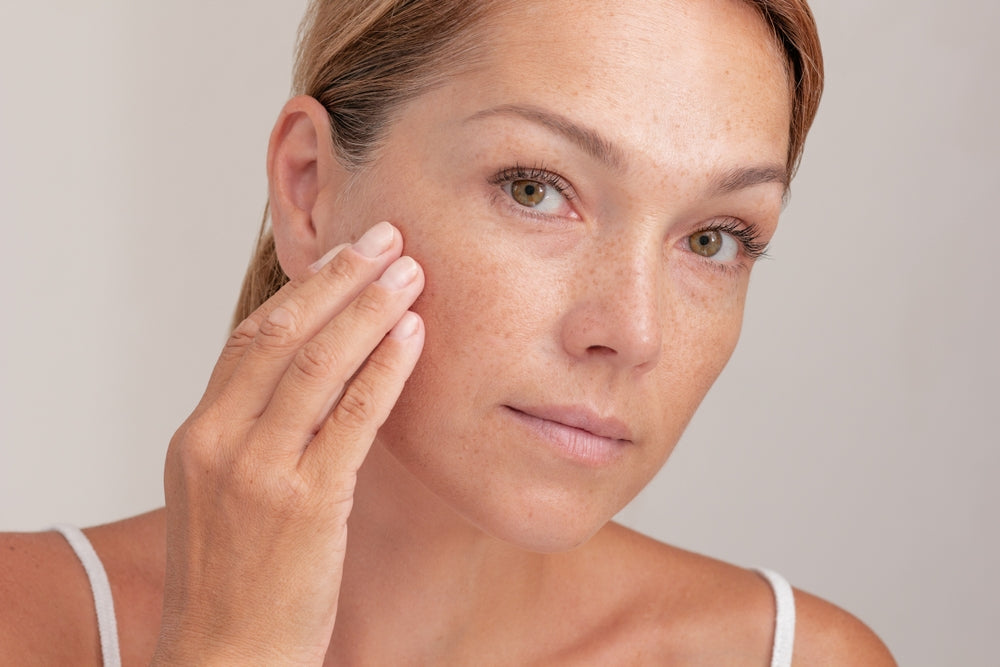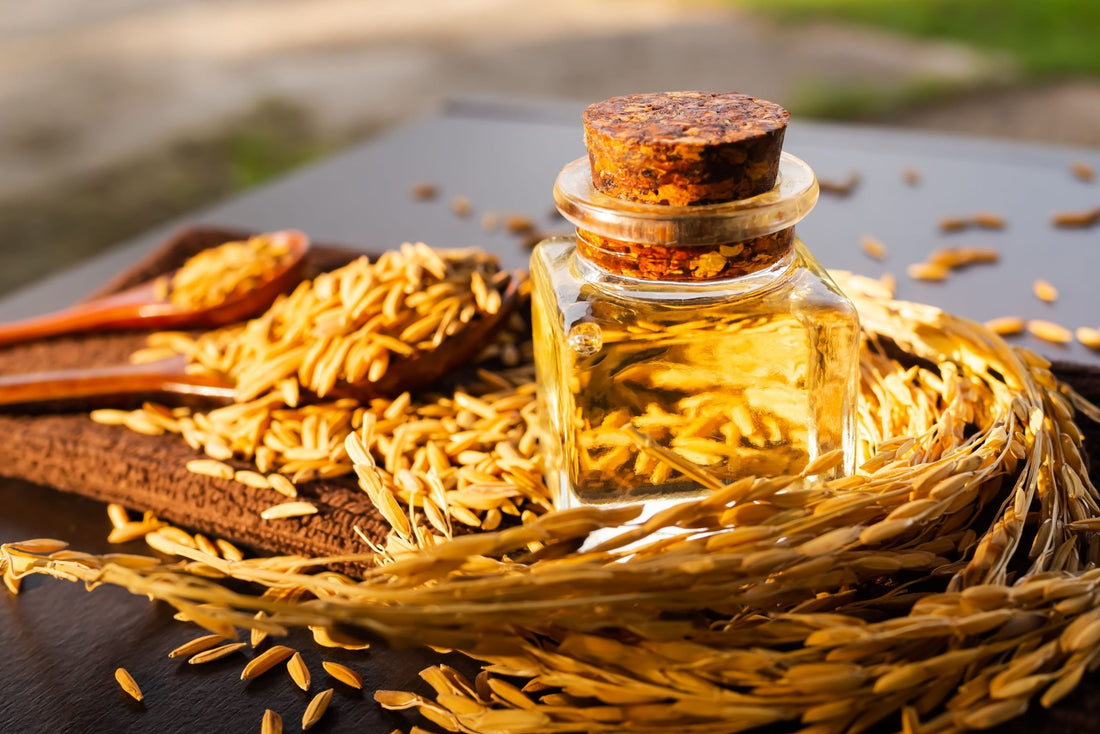Oily and blemish-prone skin is common when people are going through puberty or experiencing other changes in hormones, which are phases of life that can often be predicted and understood. However, you can easily change skin types for various reasons, from stress levels to changing weather.
In summer, oily skin often produces more sebum due to heat and humidity, leading to shine and clogged pores. Skincare products that work in cooler months may feel too heavy, so switching to lighter formulas can benefit your skin. Adjusting your routine seasonally helps manage excess oil without stripping the skin.
If you’ve noticed your skin has become more oily to the degree that your everyday products are less effective or too moisturizing, it may be due to one of these common causes. Read on to find out how to remove excess oil and address the causes of oily skin.
What is Oily Skin?
Oily skin results from excess sebum production by the sebaceous glands. While sebum helps protect and hydrate the skin, excessive production can lead to shine, clogged pores, and breakouts. Often seen in the T-zone, genetics, hormones, and environment influence oily skin. Managing it requires a balanced routine that supports the skin barrier without over-stripping the skin.
Lack of Hydration
It may seem like drinking more water can lead to perfectly hydrated skin. However, dehydrated-looking skin is more likely a result of an impaired barrier. The outermost layer of skin acts as a barrier to hold water onto the skin and prevent water from evaporating. This “brick-and-mortar” barrier is composed of skin cells, oil, and natural moisturizing factors like lactic acid and amino acids that attract water into the skin. Sebaceous glands in the dermis are responsible for producing oil. These natural lipids condition the skin and help against moisture loss. This delicate balance of water retention and oil production helps maintain the skin barrier. When the skin barrier is disrupted, you may be susceptible to transepidermal water loss (TEWL). TEWL is the biggest contributor to dehydrated skin, which can lead to other skin issues as well as a lack of moisture.
The lack of water may also cause your oil glands to overproduce oil, resulting in excess oil on the skin. Adding a moisturizer with humectants, emollients, and occlusives helps the skin appear moisturized and may help against the look of oily skin.
Genetics
It’s no secret that one of the leading factors in your skin type is what skin type your parents have. Some people have easy-to-manage skin, and others have a skin type that requires more attention. This doesn’t just apply to the long-term experience of your skin type, but also to what types of phases of oil production you can expect to deal with throughout your life.
Hormones/Age
In addition to genetics, your age and hormones play a role in oil production. Sudden changes in hormones like the onset of puberty or menopause can stimulate oil production. This is because the sebaceous glands are under hormonal control. Specifically, an abundance of androgen hormones increases sebum. This is why acne is more common during the teen years. Excess oil combined with dead skin cells clogs follicles and traps bacteria, leading to breakouts.
Stress
Stress doesn’t just affect your mental health; it can also manifest itself physically in many ways, one of which is in the condition of your skin. The body’s stress response includes releasing the hormone cortisol into your bloodstream, which can signal your skin to produce more oil.
If you know you're about to encounter a stressful period in your life, it's also good to know your body might increase sebum production, so you can adjust your skincare routine to deal with excess oil throughout the period. Finding the right skincare routine and managing stress in other ways, like exercise or deep breathing, is essential in maintaining your desired complexion.
Overaggresive Products
One thing to evaluate if you’re suddenly experiencing oily skin is whether you’ve recently changed your skincare routine. Using products that are too intense or using them too aggressively can interfere with the skin’s natural barrier and the activity of the sebaceous glands. This is why it’s essential to use products as directed. Exfoliants are great options to reduce excess oil and help with dullness and debris, but must be used with caution. For example, use a physical scrub to exfoliate no more than 2 times per week and use actives like glycolic acid, salicylic acid, retinol, and vitamin C at different times of the day to minimize irritation and avoid overexfoliation.
If you’ve recently started a new product or step in your skincare regimen, make sure to start using it a couple of times per week, then slowly increase the frequency. Stripping your skin of its natural oils may trigger your body’s oil-producing response.
Other Factors
Other factors that can contribute to suddenly oily skin are the environment, your diet, and some medications. Changes in the seasons are common times for skin changes to occur. Heat and humidity during summer can make skin look and feel oilier. Using a lighter moisturizer during summer and a matte finish sunscreen can help with the look of oily skin.
Eating a poor diet can also negatively impact the skin and make skin appear oilier. Excess iodine consumption is known to trigger inflammation and potentially affect oil production for some people. Highly processed foods and sugar can also lead to inflammation and are known to affect insulin levels. Higher insulin levels can increase sebaceous gland activity, resulting in oilier-looking skin. Limiting salty and sugary foods and increasing fresh fruits and veggies in your diet not only helps your skin, but it is an important part of a healthy lifestyle.
Lastly, some medications like birth control pills affect hormones and excess oil production. If you notice your skin is suddenly more oily than normal, a skincare professional can help identify the right products for your skin and help you understand why your skin is oily.
High-Quality Skin Care Products From Epicuren
Glycolic Lotion Skin Peel
Our Glycolic Lotion Skin Peel is an exfoliating moisturizer. Formulated with 5% or 10% glycolic acid and bearberry extract, these ingredients are known to help brighten the look of skin, exfoliate, and have antioxidant properties.
Citrus Herbal Cleanser
The Citrus Herbal Cleanser is formulated with citrus peel oils, gluconolactone, willow bark extract, and cucumber fruit extract. These ingredients are known for gentle exfoliation, antioxidant properties, and botanical extracts that help cleanse and clarify the skin.
Acidophilus Probiotic Facial Cream
This nourishing facial cream is formulated with probiotic-rich lactobacillus ferment, green tea extract, hyaluronic acid, and silver. These ingredients are known for their antioxidant and hydrating properties, offering support for smooth, balanced-looking skin.
Take Our Skin Quiz Today
Take our Skin Quiz today to find out which products are best tailored to your skin type and goals.
Frequently Asked Questions About Oily Skin
How Do I Stop My Face From Being So Oily?
First, it’s important to look at the factors we discussed above. Then, seek guidance from a trained skin specialist for help to determine what actions you can take to minimize the appearance of oily skin. You can also take an inventory of your current skincare products to see if any other them are too heavy for oily skin. If you are not using products formulated for oily skin, you may not be getting the most out of your routine.
If your skin is sweaty and oily from an activity or being outside, try cleansing it during the day after the activity in addition to the morning and evening. It is not advised to wash your face more than twice a day regularly as this can strip the skin’s natural oils. However, if you have just worked out or spent time outside sweating, washing your face afterwards can help wash off dirt and debris that wouldn’t normally accumulate under regular conditions.
Why is My Forehead Suddenly So Oily?
Stress, changes in the weather, and hormone imbalances can affect how your skin expresses oil. If your forehead has become more oily than usual, there are a few things to consider. One, make sure you are properly washing your forehead with the right cleanser for your skin type. In addition to stress, weather, and hormones, you should also look for possible triggers in your diet and lifestyle. Did you start wearing a hat recently? Are you using a new skincare product? Did you try a new shampoo/conditioner or other hair product? Narrowing down the triggers is the first step to managing your oily skin. Next, work on a good skincare routine by getting expert advice and professional exfoliating treatments to minimize the appearance of oily skin.
Why is My Face More Oily Than Normal?
Your sebaceous glands, responsible for oil production, can become more active due to changes inside or outside your body. Therefore, countering your excess oil should consist of both lifestyle adjustments and good skincare.
Does Stress Cause Oily Skin?
Stress can cause your skin to secrete more sebum and oil, although everyone responds to stressors differently. Create ways to manage your stress if you find it is impacting your skin. This can include eating a healthy diet, exercising, meditating, journaling, or even just spending time with people whom you enjoy being around can all contribute to reducing stress.
Does Drinking Water Reduce Oily Skin?
Drinking enough water is an important part of maintaining a healthy lifestyle, but surprisingly is not going to reduce your oily skin. Sometimes, oily skin is caused when oil glands produce more sebum to moisturize the skin’s surface when skin is dehydrated. This is generally due to an impaired barrier less than an inadequate amount of water intake.
--





